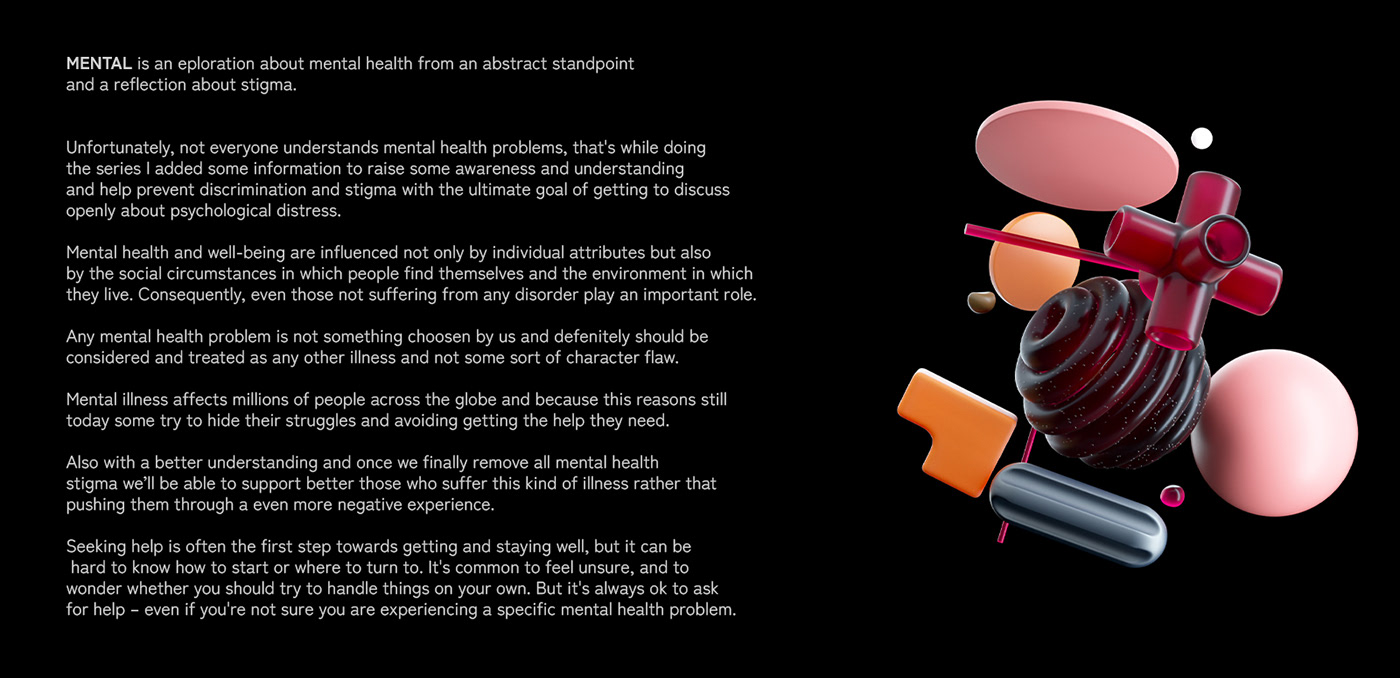




-Social Anxiety-
Social anxiety disorder is characterized by persistent fear of one or more social or performance situations in which the person is exposed to unfamiliar people or to possible scrutiny by others. The individual fears that he or she will act in a way (or show anxiety symptoms) that will be embarrassing and humiliating.

-Stress-
Stress is our body’s response to pressure. Many different situations or life events can cause stress. It is often triggered when we experience something new, unexpected or that threatens our sense of self, or when we feel we have little control over a situation.
We all deal with stress differently. Our ability to cope can depend on our genetics, early life events, personality and social and economic circumstances.
When we encounter stress, our body produces stress hormones that trigger a fight or flight response and activate our immune system. This helps us respond quickly to dangerous situations.

-Apathy-
Apathy occurs frequently in neuropsychiatric disorders both as a symptom of other syndromes and as a syndrome per se. Apathy is when you lack motivation to do anything or just don’t care about what’s going on around you. Apathy can be a symptom of mental health problems, Parkinson’s disease, or Alzheimer’s disease. It often lasts a long time. You may lack the desire to do anything that involves thinking or your emotions.

-Bipolar Disorder-
This disorder affects about 45 million people worldwide. It typically consists of both manic and depressive episodes separated by periods of normal mood. Manic episodes involve elevated or irritable mood, over-activity, rapid speech, inflated self-esteem and a decreased need for sleep. People who have manic attacks but do not experience depressive episodes are also classified as having bipolar disorder.

-Developmental disorders-
Developmental disorder is an umbrella term covering intellectual disability and pervasive developmental disorders including autism. Developmental disorders usually have a childhood onset but tend to persist into adulthood, causing impairment or delay in functions related to the central nervous system maturation. They generally follow a steady course rather than the periods of remissions and relapses that characterize many mental disorders.

-Eating disorders-
There is a commonly held misconception that eating disorders are a lifestyle choice. Eating disorders are actually serious and often fatal illnesses that are associated with severe disturbances in people’s eating behaviors and related thoughts and emotions. Preoccupation with food, body weight, and shape may also signal an eating disorder. Common eating disorders include anorexia nervosa, bulimia nervosa, and binge-eating disorder.

-Depression-
Depression is a common mental disorder and one of the main causes of disability worldwide.
Globally, an estimated 264 million people are affected by depression. More women are affected than men.
Depression is characterized by sadness, loss of interest or pleasure, feelings of guilt or low self-worth, disturbed sleep or appetite, tiredness, and poor concentration. People with depression may also have multiple physical complaints with no apparent physical cause. Depression can be long-lasting or recurrent, substantially impairing people’s ability to function at work or school and to cope with daily life. At its most severe, depression can lead to suicide.

-Dementia-
Dementia is usually of a chronic or progressive nature in which there is deterioration in cognitive function
(i.e. the ability to process thought) beyond what might be expected from normal ageing. It affects memory, thinking, orientation, comprehension, calculation, learning capacity, language, and judgement. The impairment in cognitive function is commonly accompanied, and occasionally preceded, by deterioration in emotional control, social behaviour, or motivation. Dementia is caused by a variety of diseases and injuries that affect the brain, such as Alzheimer's disease or stroke. Though there is no treatment currently available to cure dementia or to alter its progressive course, many treatments are in various stages of clinical trials. Much can be done, however, to support and improve the lives of people with dementia and their carers and families.

-Psychoses-
Psychoses, including schizophrenia, are characterized by distortions in thinking, perception, emotions, language, sense of self and behaviour. Common psychotic experiences include hallucinations (hearing, seeing or feeling things that are not there) and delusions (fixed false beliefs or suspicions that are firmly held even when there is evidence to the contrary). The disorder can make it difficult for people affected to work or study normally.
Bibliography
--------------------------------------------
--------------------------------------------





